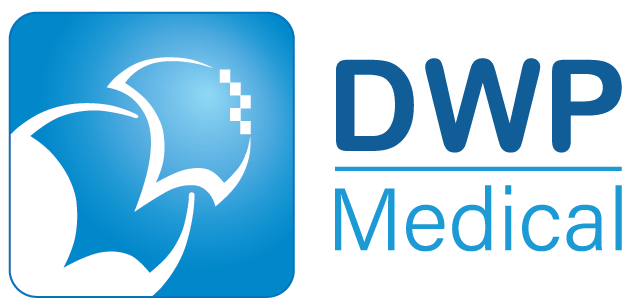POS 11 refers to the Place of Service code in the medical billing context, whereas 11 means that the service or procedure was done in an office setting.
Insurance firms also benefit by knowing where the doctor has treated the patient. It will help determine how they handle your claims and payment rates. For example, if someone receives treatment at the doctor’s clinic, POS 11 is filed so the insurance company would know or be informed that it did not happen in a hospital or elsewhere.
This little code, POS 11 in medical billing, has a very important role in properly handling payments in health care.
What Are POS in Medical Billing?
In the medical billing protocols, POS means Place of Service. It is a code to indicate the location where a patient received care or treatment. These codes are valuable since they let insurance companies comprehend where the service is given. Plus, how they should handle claims and deal with the payment.
However, different POS codes are used for different places, such as the service delivered in a hospital, a nursing home or a doctor’s office. All the codes refer to a definite place. One of the most frequently used codes is POS 11. Place of service 11 means that the service was provided in a doctor’s office/clinic.
Applying the right POS code helps in the right coding of the medical claims, which helps in the correct payments of the services provided.
POS Codes Categories
POS codes, or Place of Service codes, refer to code classifications by geographic area of healthcare service delivery. These categories enable the insurance company to determine the precise location of a patient who received treatment among all the various places that offer treatment.
Here are some common categories of POS codes:
- Office (POS 11): The place of service 11 description involves when a doctor has given service at his office or clinic. The treatment can include a practice where patients attend for general checkups or simple treatment.
- Hospital (POS 21-23): These codes are specific to the type of hospital care a patient receives: inpatient, outpatient, or emergency.
- Home (POS 12): This code is for services that are delivered to the patient’s place, which includes anything like home care, physical therapy, and the rest.
- Skilled Nursing Facility (POS 31): This code means that the care is provided at the nursing center.
- Telehealth (POS 02 or 10): These codes mean that doctors provide services offered through telecommunication, such as video consulting services.
Every POS code guarantees that healthcare providers and insurance companies understand where the doctor has given the service so that billing can be easy and accurate.
What is POS 11 in Medical Billing?
POS 11, known as Place of Service 11, is a code that indicates on the claim that the service was rendered in a doctor’s office or a clinic. Regarding the insurance field, insurance companies must identify the location where the service occurred to pay for the service provided correctly.
Why is Place of Service Code 11 Important?
This means that the placement of facilities influences how insurers compensate practitioners. For example, an office-based service (POS 11) attracts charges different from those for the same service done in a hospital or at home. When completing the forms, one must use the right POS code to avoid rejecting, delaying, or denying the claims.
What Does POS 11 Include?
POS 11 applies to any medical service or treatment provided in:
- A doctor’s private office
- Either a clinic or an outpatient practice
- A place in which a doctor is present for common checkups, advice, or minor surgeries.
Sample of POS 11 Services
- Periodic examinations, including specifically yearly examinations.
- In-office consultations on sick advice findings
- Simple clinical procedures, including giving of vaccines
POS 11 indicates the type and meaning of the code needed for billing purposes. Moreover, its use will help to minimize confusion regarding when specific codes can be used in claims.
Role of POS in Medical Billing
Medical billing is incomplete without POS that is the place of service. These codes are used to point out where a healthcare service was given so insurance companies can process claims in the correct way. Every POS code corresponds to a specific place, for example, a doctor’s office, hospital or patient’s house.
We are going to talk about POS, especially in medical billing, and the advantages of medical billing. We will also look at the application of medical billing, as well as the process of medical billing.
Advantages of POS Codes in Medical Billing
Accurate Claim Processing:
POS codes are specific about the locations; it is the locations where the doctor checks the patient. Such accuracy is particularly useful in health-related insurance. If you correctly add POS codes, the payment and process will run smoothly without delay or mistakes.
Proper Reimbursement Rates:
Insurance firms are aware of the location of such services since they determine payment based on the geographical area of the service. The services offered – the context of service delivery may also occasion variations in the reimbursement rates across facilities. For example, reimbursement rates assigned to services conducted in a hospital may be higher than those performed in a clinic. You can save a lot of time with correct data entering.
Compliance with Billing Regulations:
Appropriate POS coding enables physicians to reduce insurance and government laws that may lead to an audit, penalty or rejection of claims.
Uses of POS Codes
Identifying Service Locations:
POS codes distinguish if the care took place in a doctor’s office, the hospital, a nursing facility, or a home.
Streamlining Communication:
POS codes also help to establish better cooperation between healthcare providers and insurance companies. Also, it will help reduce misunderstandings.
Classification of Health Care Services:
POS codes, which are against every location, have the purpose of sorting healthcare services for record and analysis.
How POS Codes Work?
During Patient Visits:
During the patient’s visit to a healthcare provider, the service location is documented. For instance, if the doctor treats the patient in the office, then the bill will have POS code 11.
Medical Billing:
The billing team fills the claim form with the right POS code in addition to other descriptions of services rendered. This way, the insurance company is aware of the location of the treatment.
Claim Submission and Processing:
The insurance company will receive the claim and then examine the POS code with other details. When coding is correct, it quickens the procedure of approvals of payments and claims.
Reimbursement:
From the POS code, the insurance company determines and pays the healthcare provider in the correct ratio according to the rate.
Challenges and Solutions:
Inaccurate codes lead to denied claims or payment shortfalls. For instance, using POS 11 for hospital-based services may cause problems. However, make sure that the billing staff takes time to learn about POS codes. Plus, use electronic billing systems to avoid as many errors as possible.
Most importantly, make sure to always check with the claims to make sure they conform to the standards.
Conclusion
POS codes are also essential in medical billing since they guarantee correct claims besides facilitating the insurer and provider relationship. Choosing the right POS codes, such as pos 11, will avoid the problem of billing. Also, it will smoothen the revenue cycle of many healthcare providers.
So, if you require an efficient and experienced team who can manage your medical billing, you can call DWP Medical. Utilizing our experience in managing POS codes, claims, insurance follow-ups and enables us to provide accurate bills with minimum delay in reimbursements. We will take off your billing issues while you continue to attend to the health needs of your patients.


